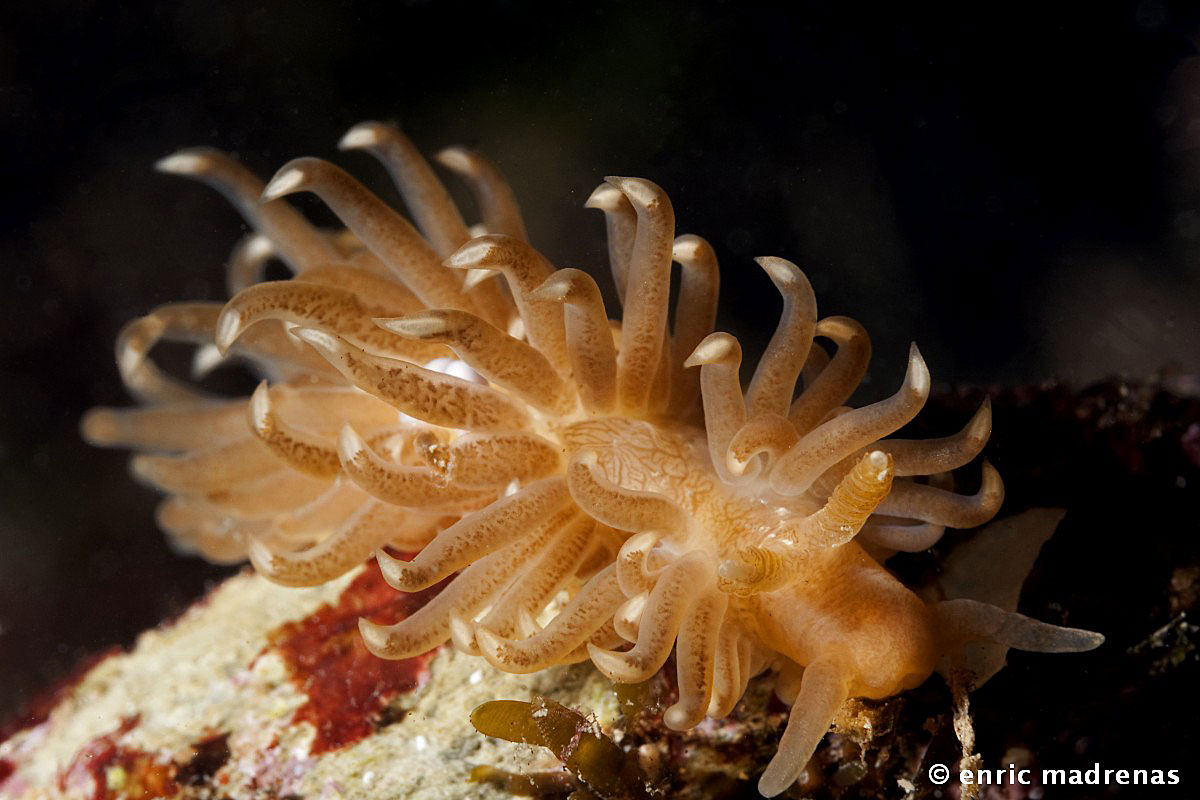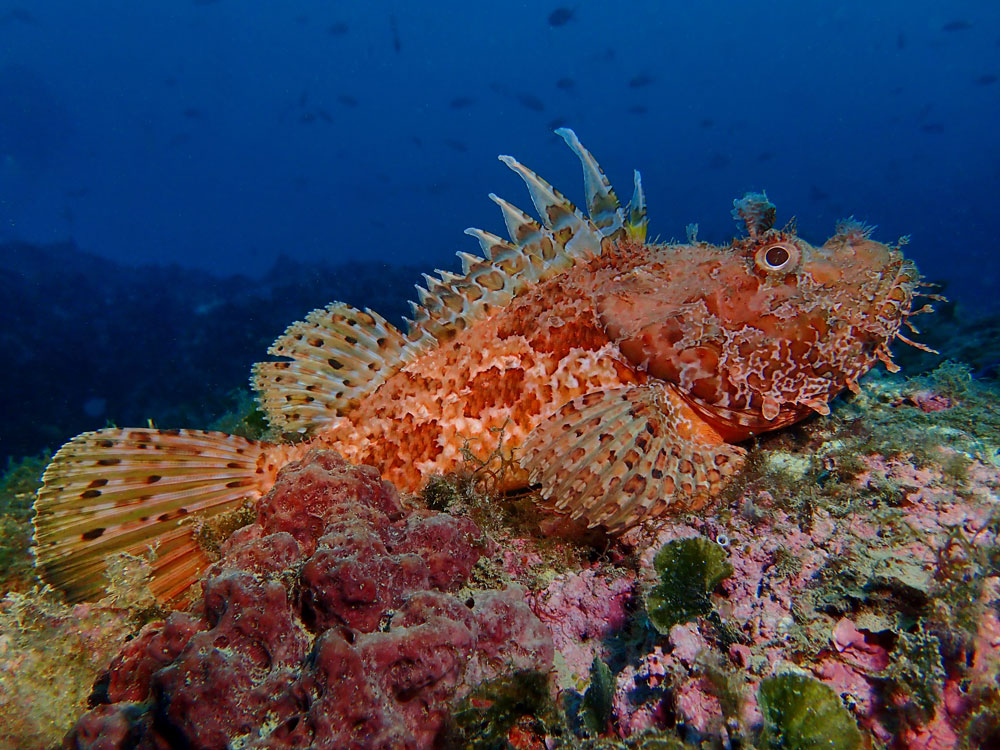The benefits
The benefits provided by the seas and oceans
Among the many benefits for the health and well-being of people provided by marine ecosystems, there are three main ones:

A
The bioactive potential of marine organisms as a source of new medicines.
Bioactive compounds are a clear example of the benefits to human health from the sea; numerous potentially beneficial molecules are produced by a wide range of marine organisms, from bacteria, fungi and microscopic algae to more complex organisms such as macroscopic algae, plants and animals.
These bioactive compounds are being investigated with the aim of obtaining new medicines that can be used to fight certain types of cancer, infections and inflammations, among other conditions.
The branch of science that investigates the bioactive potential of marine species in the search for new medicines is called marine biotechnology and it is currently of huge scientific importance as well as of great interest to the pharmaceutical industry.
We must conserve the marine organisms that produce these bioactive compounds, especially considering that many of them are endangered.

B
Healthy foods from the sea.
Seafood resources (fish, algae and invertebrates from extractive fisheries and aquaculture) not only provide us with a source of quality protein but also a source of omega 3 fatty acids (n-3 or ? 3 fatty acids).
Omega 3 fatty acids are essential for a healthy diet and have been shown to help prevent cardiovascular diseases and certain cancers, two of the leading causes of death by disease in the western world.
Research on the links between Omega 3 and human health is currently wide-ranging and new studies are emerging regarding its benefits in other conditions such as depression, inflammatory diseases or allergies.
For future generations to continue benefiting from Omega 3, a fisheries policy is needed to promote the conservation of all fisheries resources and a sustainable aquaculture.

C
The health benefits linked to living near the coast and taking part in leisure activities at sea.
Many of the recreational activities that take place at sea or on the coast, from walking on the beach to practicing sports such as kayaking, diving or swimming, not only provide benefits for the physical health of people (particularly in preventing cardiovascular diseases) but also contribute to their emotional well-being, providing benefits for the mental health of both healthy people and those suffering from psychological illness.
The recreational activities that people carry out at sea or on the coast become an important factor in their physical and mental health.
This provides us with a new component to consider when evaluating maritime and coastal tourism, which is a crucial sector for the economy of many coastal towns in the Mediterranean and around the world.
Tourism should be sustainable, but we must remember how healthy it can be.
Table of main health benefits from the sea
| Product / activity | Specific agent | Health benefits |
|---|---|---|
| Fishing: Seafood consumption | Omega-3 fatty acids | Cardiovascular health Prevention of certain types of cancer Others (depression, inflammation, etc.) |
| Proteins and vitamins (D, B12) | Food security Prevention of osteoporosis Cardiovascular health |
|
| Minerals (selenium, iodine) | Immunological system Thyroid |
|
| Maritime tourism | Physical activity and relaxation | Physical and mental health |
| Marine Biotechnology | Bioactive potential of some marine species | Finding new medicines to fight certain cancers, viruses, microbes, etc. |


















